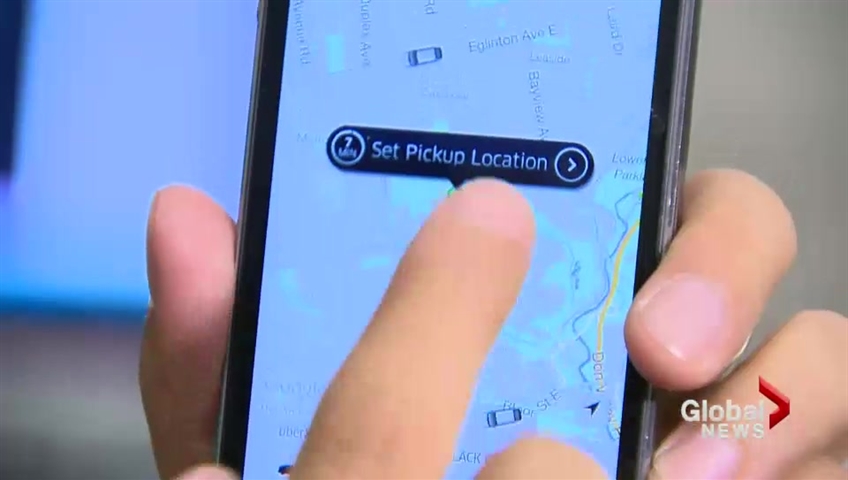A possible cap on surge pricing is one of 32 recommendations that have been put forward in a report on ride hailing by an all-party committee in B.C., and they could help to open the doors for services like Lyft and Uber.

The report is now in the hands of the provincial government, which will decide whether to allow ride hailing companies to operate.
Coverage of ride hailing on Globalnews.ca:
“It’s important that any provincial regulatory regime developed takes into account the need for fairness, consumer protections and workers’ rights in an ever‐changing economy,” committee chair Bowinn Ma said in a statement.
“Public safety, including appropriate driver screening, vehicle inspections and insurance are paramount.”
But Ma would not speculate on when ride hailing is coming to the province. She said the committee was not tasked with establishing timelines and that the government has lots of information to go through now.

Get daily National news
The report provided recommendations around accessible rides, suggesting that the government put a levy on all non-accessible ride-hailing trips with the money going to improving accessibility services.
The committee also recommended protecting taxi stands and airport service for the traditional cab companies.
One of the controversial facets of existing ride-hailing companies is that they charge surge pricing, meaning rides are more expensive when demand goes up. The committee is recommending a potential cap on them.
“The NDP promised ride sharing by the end of 2017 and they were not prepared to make that decision,” said Liberal MLA Stephanie Cadieux.
“We have now provided a unanimous report that outlines how to get it done. I think it’s now incumbent on the NDP to pass the legislation.”
The committee also suggested that government require ride-hailing companies provide data on trip lengths, wait times and other issues, for monitoring purposes.
Another recommendation: a prescribed minimum insurance level.
“None of these recommendations are big hurdles,” said BC Green Party leader Andrew Weaver. “They just require a little bit of work.”
The report came on the same day that the group Ridesharing Now for BC released a poll showing an overwhelming support for companies like Uber and Lyft in B.C.
“The introduction of ride sharing services like Uber and Lyft is not a controversial idea for residents of the Greater Vancouver area,” Bruce Anderson and David Coletto of Abacus Research said in a statement.
“Lots of people imagine that they would use these services, and opposition to their introduction is very limited.”
The poll found that 64 per cent of residents strongly support having ride-hailing services available in B.C. in 2018.
Only nine per cent are opposed.
The poll found that British Columbians most want ride hailing because of its affordability and convenience.
READ MORE: Uber app in B.C. drew half a million visitors over the last two years
The government remains concerned about impacts on the taxi industry.
Premier John Horgan seemed to throw cold water on ride-hailing coming any time soon in a Facebook Live interview with Global News on Wednesday,
“It is critically important that people understand that there is an existing industry that is feeding families and paying rent and paying mortgages and to have that undercut by having a new entrant that doesn’t have regulatory requirements wouldn’t be fair,” Horgan said.














Comments
Want to discuss? Please read our Commenting Policy first.